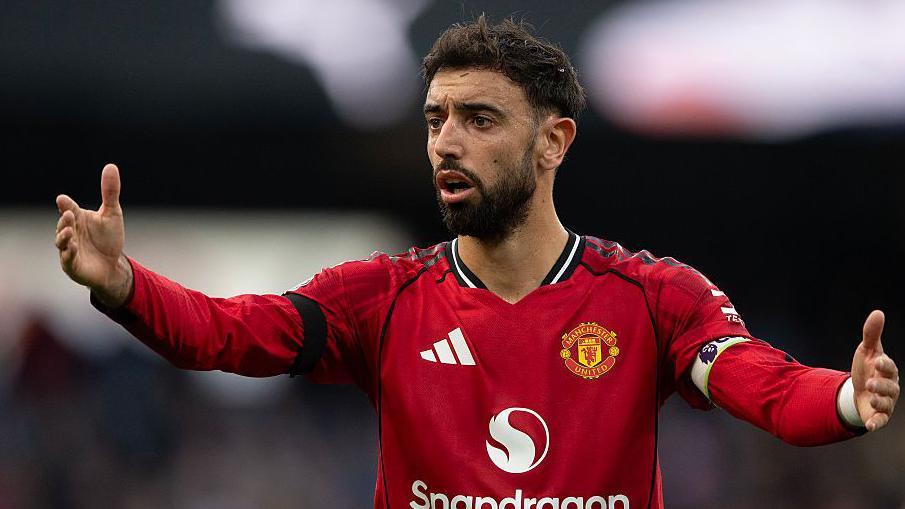Manchester United’s slow start under Ruben Amorim puts him under pressure, despite internal support. Underlying stats show minor gains, but poor finishing and defense undermine progress. Tangible improvement is crucial for his future.
Manchester United's underwhelming start to the season has intensified the scrutiny on their head coach, Ruben Amorim. With a win rate of just 25.8% in his Premier League games, the pressure is mounting on the Portuguese manager to deliver tangible improvements. The Red Devils have struggled to find consistency, securing only two victories in their last 13 top-flight matches. Their recent performance against Manchester City, a 3-0 defeat, further amplified concerns about the team's direction and progress under Amorim.
Despite the growing external unease, senior figures within the club remain steadfast in their support for Amorim. Sources inside the club contend that key performance indicators suggest the team is, in many respects, outperforming last season, even though they currently sit in 14th place. This is their worst start to a league campaign since the 1992-93 season, with a mere four points collected from their opening four games.
A deeper dive into the underlying statistics reveals a nuanced picture. Over the past six months, there has been a modest improvement in several areas, but these gains have often been overshadowed by deficiencies in critical areas of the pitch. Specifically, since the beginning of March, Manchester United have scored nine fewer goals than expected based on the quality of chances they have created (their expected goals figure, excluding penalties). Concurrently, they have conceded 3.4 more goals than anticipated, highlighting both wasteful finishing and uncertain goalkeeping. These factors have significantly impacted their ability to convert improved performances into positive results.
To illustrate this, the provided graph showcases Manchester United's 31 league fixtures under Ruben Amorim. The downward-trending yellow line represents their changing 10-game non-penalty goal difference, reflecting their actual results. Conversely, the upward-trending black line depicts their expected goal difference, indicating their dominance in games and the quality of chances created. The divergence between these lines underscores the disparity between their performance and their results.
Since March 1, Manchester United's non-penalty expected goal difference has been fairly respectable, placing them among the top seven teams in the league. However, this statistical advantage has not translated into tangible success on the field. During this period, Amorim's team has only managed to accumulate 13 points, a figure matched only by West Ham and the lowest total of any ever-present Premier League club.
This disparity between underlying performance and actual results highlights the challenges Amorim faces in converting potential into points. While subtle improvements may be evident, a more significant and demonstrable upturn in results is imperative if the Portuguese manager is to secure his long-term future at Old Trafford. The team's inability to capitalize on scoring opportunities and their vulnerability in defense continue to undermine their progress.
To compound matters, fans are growing increasingly impatient, and media speculation about potential replacements for Amorim is intensifying. While the club's hierarchy remains supportive, the pressure to deliver results is unrelenting. The upcoming fixtures will be crucial in determining whether Amorim can turn the tide and demonstrate the progress needed to justify his position. The focus will be on improving both the team's efficiency in front of goal and their defensive solidity.
Ultimately, the question remains: are Manchester United showing any signs of progress under Ruben Amorim? While there are subtle indications of improvement in underlying statistics, the lack of tangible results suggests that much more is required. The coming weeks will be critical in determining whether Amorim can deliver the transformation needed to secure his future at Old Trafford and silence the growing chorus of critics.
